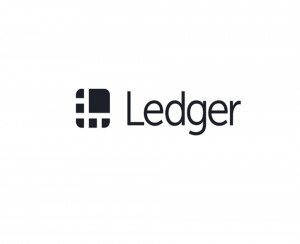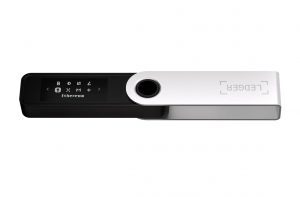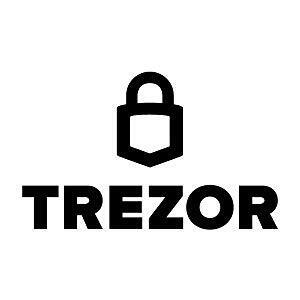- >Best Crypto Wallets
- >Safest Crypto Wallets
Top 5 Safest Crypto Wallets for Secure Storage
Crypto Wallet
What Makes the Wallet Safe?
Private Key Control
User Experience
Advanced security with offline passkeys.
Secure element chip
Requires app integration, but smooth
What Makes a Crypto Wallet Truly Secure? Our In-Depth Breakdown
Security is the most important factor when choosing a crypto wallet. Excellent security comes down to how well your wallet protects your private keys, the encryption methods it uses, and the extra security layers it uses to keep your crypto safe from hackers and unauthorized access. Each wallet type has its own strengths and security measures. In this section, we’ll take a look at the specific security features of each recommended wallet and explain why these are the safest crypto wallets available today.
Ledger Nano X – Best Hardware Wallet
Ledger, founded in 2014, is considered the leading hardware wallet solutions provider and offers hardware wallets. The Ledger Nano X crypto wallet supports bluetooth and has its own batter, and it can store up to 100 simultaneously digital assets from a selection of 5,500+ cryptocurrencies that can be managed from your computer or smartphone. It can be used in conjunction with hot wallets like Phantom, MetaMask, and Ledger’s native wallet, Ledger Live in order to have greater security.
- Flagship Ledger wallet with industrial-grade security with bluetooth
- Supports over 1300 crypto assets and tokens
- Supports all major desktop and mobile operating systems
- Connect to Ledger Live for staking, DeFi, NFTs and more
Ledger Nano S Plus – Best for Cold Storage
The Ledger Nano S Plus is a compact and affordable hardware wallet that securely stores crypto assets offline. It generates and stores private keys directly on its CC EAL5+ certified secure element chip, ensuring keys never leave the device or connect to the internet. It differs from the Nano X in that it does not offer Bluetooth, and it has no battery.
Users access funds using a PIN code and can recover assets using a recovery seed phrase if needed. Its large screen enables users to verify transaction details directly on the device. The Ledger Nano S Plus can store up to 100 digital assets from the 5,500+ available cryptocurrencies.
- Exceptional value for the price
- Huge improvement over original Nano S with better screen and more storage
- Install over 100 apps with support for thousands of assets
- Connect to Ledger Live for staking, DeFi, NFTs and more
- One of the most widely supported hardware wallets in crypto
Trezor Model One and Model T – Best for Offline Key Storage
Trezor hardware wallets are physical devices that securely store cryptocurrency private keys offline. Both Trezor Model One and Model T feature fully open-source firmware and software, enabling independent security audits and community-driven improvements. Private keys are protected by user-defined PIN codes and optional passphrase encryption, reducing unauthorized access risk. The Model T has a color touchscreen that enables users to input sensitive information directly on the device, mitigating malware exposure risks. Advanced backup features, such as Shamir Backup, split recovery seeds into multiple shares stored separately. This safeguards users against theft or loss.
- Top-tier cryptocurrency wallet with impressive touchscreen
- Compatible with a number of software wallets
- Store cryptocurrency, passwords and other keys with ease
- Excellent customer support
Coinbase Wallet – Best Multi-Asset Wallet
Coinbase Wallet is a decentralized software wallet application that enables users to securely manage crypto assets and NFTs, directly from their mobile devices or browsers. Coinbase Wallet provides full self-custody. Users maintain exclusive control over their encrypted private keys that are stored locally on their devices. Security features include biometric authentication (fingerprint or facial recognition), PIN protection, encrypted cloud backups secured by user-defined passwords, multi-factor authentication (MFA). There is also Secure Enclave technology for isolated key storage, token approval alerts to prevent malicious dApp interactions, transaction transparency features, and integration with hardware wallets like Ledger, for enhanced multi-layered security.
- Non-custodial wallet developed by Coinbase team
- Easy to swap assets between Coinbase wallet and Coinbase exchange
- Support for over 100 crypto assets including Bitcoin, Ethereum and USDC
- One of the most secure software-based wallets
- Ability to store NFT assets
Zengo Wallet – Best Multi-chain Wallet
Zengo’s multi-chain crypto wallet is one of the safest wallets for crypto. Zengo Wallet is a non-custodial mobile crypto wallet that uses advanced Multi-party Computation (MPC) technology.
MPC splits key generation between multiple independent parties, one share stored securely on the user’s device and another on Zengo’s servers. This prevents a single point of failure or compromise. MPC eliminates risks associated with lost or stolen private keys, and preserves user control through biometric facial recognition authentication and encrypted cloud backups. Zengo offers easy backup solutions and straightforward asset recovery processes. Its multi-chain support enables secure management of cryptocurrencies within one intuitive app interface.
- No passwords, no seed phrases, no private keys = no lost funds to a lost passwords
- A hybrid of a custodial and non-custodial wallet
- Free to download and set up takes just 21 seconds
- Streamlined user interface that’s easy to understand for crypto users
Choosing the Safest Option for Your Assets
Wallets come in all different shapes and sizes, and choosing the safest option can get tricky. Wondering What Kind of Cryptocurrency Wallet Should I Use? We have a whole guide explaining the key differences between each type. In the meantime, here’s a quick breakdown of what sets them apart security-wise:
Wallet Type
Security Level
Security Features
Internet Connection
Crypto Wallets
Paper
High
Offline storage; complete control of keys
Not Required
Bitcoin Paper Wallet
Which Crypto Wallet is the Most Secure?
The safest wallet for crypto is a cold wallet, like a hardware wallet. The Ledger Nano X is one of the safest crypto wallets available. Released in 2019, it combines cutting-edge technology with a proven track record of exceptional privacy. With over 5 million devices sold and no recorded breaches of its core security systems, the Ledger Nano X is one of the safest wallets for crypto for beginners and experienced crypto users looking for top-tier protection.
The Ledger Nano X uses a tamper-resistant microcontroller that securely stores private keys offline, ensuring they are never exposed to online threats. This chip is independently certified by the French National Agency for the Security of Information Systems (ANSSI), reinforcing its reputation for robust security. Ledger’s proprietary operating system isolates crypto apps on the device, minimizing vulnerabilities from potential malware.
Despite its Bluetooth connectivity for mobile convenience, the wallet ensures that only public data is transferred wirelessly. Private keys and seed phrases never leave the device. Transactions require physical confirmation via buttons on the device, making remote attacks virtually impossible. In case of loss or theft, users can recover their assets using a 24-word recovery phrase.
- Flagship Ledger wallet with industrial-grade security with bluetooth
- Supports over 1300 crypto assets and tokens
- Supports all major desktop and mobile operating systems
- Connect to Ledger Live for staking, DeFi, NFTs and more
How to Set Up Your Wallet to Maximize Safety
Setting up a crypto wallet securely is crucial. Start by choosing one of the safest crypto wallet providers, like Ledger, Trezor, or MetaMask, and ensure you download the software or browser extension only from official sources. For hardware wallets, buy directly from the manufacturer to avoid tampered devices.
- Choose and store your recovery phrase carefully: During setup, you’ll be prompted to create a recovery phrase (also called a seed phrase). Write this phrase down on paper, exactly as provided, and store it in a secure location, like a fireproof and waterproof safe. Avoid saving it digitally to prevent hacking risks.
- Develop a secure password: Next, create a strong, unique password for your wallet that includes a mix of uppercase and lowercase letters, numbers, and special characters.
- Enable other security features: If the wallet offers additional security features like two-factor authentication (2FA) or biometric security, male sure to activate these features. For hardware wallets, set up a PIN code to access the device.
- Monitor changes and access: Once your wallet is set up, verify all details directly on the device (for hardware wallets) to ensure there are no unauthorized changes.
Before depositing large amounts of cryptocurrency, test your recovery phrase by restoring your wallet on another device to confirm it works correctly. When transferring funds into your wallet, always double-check the wallet address and copy-paste it, instead of typing manually to avoid errors.
Hot or Cold? Which One Is Better for Secure Storage?
When it comes to security, cold wallets are unequivocally the safest crypto wallets. Cold wallets, like hardware wallets and paper wallets, keep private keys completely offline, shielding them from online threats like hacking, phishing, and malware attacks. They are ideal for long-term storage and large holdings, as they eliminate exposure to cyber vulnerabilities. Hardware wallets, like the Ledger Nano X or Trezor Model T, increase security with features like PIN protection, secure element chips, and recovery phrases.
Hot wallets are connected to the internet and provide added convenience for frequent transactions and active trading. While reputable hot wallet providers do implement some security measures like encryption, two-factor authentication (2FA), and multi-signature support, their constant online presence makes them inherently more vulnerable to cyberattacks. Hot wallets are better suited for smaller amounts of cryptocurrency, used in daily transactions.
For maximum security, cold wallets are the safest. Many users adopt a hybrid approach: using a hot wallet for day-to-day activities and a cold wallet for safeguarding long-term investments.
FAQs
The safest type of wallet for digital assets is a cold wallet. Cold storage ensures that your private keys remain offline.
Yes, you need a crypto wallet. Crypto wallets give you control over your finances in a way that an exchange wallet cannot.
Crypto can only get locked in a wallet if you forget your spending password. However, even tin these circumstances, you can just recover the wallet on a new device and set a new password to regain access. If you forget your spending password, or lose your recovery phrase, then it’ll essentially be locked in the wallet.
The most untraceable crypto wallets prioritize anonymity and privacy features. A good example of such a wallet, would be Zengo. These wallets do not require KYC (Know Your Customer) verification, enabling users to manage their assets without revealing personal information. Hardware wallets increase anonymity by being fully air-gapped, meaning they operate offline and only interact with other devices when necessary.
There are many factors that go into determining the “safest” option. Platforms like Coinbase and Bitget have built up great reputations over the years for their robust security measures. Always look for features like cold storage for customer assets, two-factor authentication (2FA), external hardware security keys, and regular third-party audits.
Ledger Nano X and Zengo Wallet are wallets that have never been hacked. Ledger Nano X stores private keys offline, coupled with its operating system for app isolation. This ensures robust protection against cyber threats. Zengo uses Multi-Party Computation (MPC) technology instead of traditional private keys or seed phrases, eliminating single points of failure. Its combination of biometric authentication and 3-factor recovery has kept it secure since its launch in 2018.
Yes, money can be stolen from a crypto wallet if proper security measures are not in place. Custodial wallets are vulnerable if the custodian is hacked or goes bankrupt. To mitigate risks, you should store private keys offline in cold wallets, enable two-factor authentication (2FA), use strong passwords, and avoid interacting with suspicious websites or emails.











